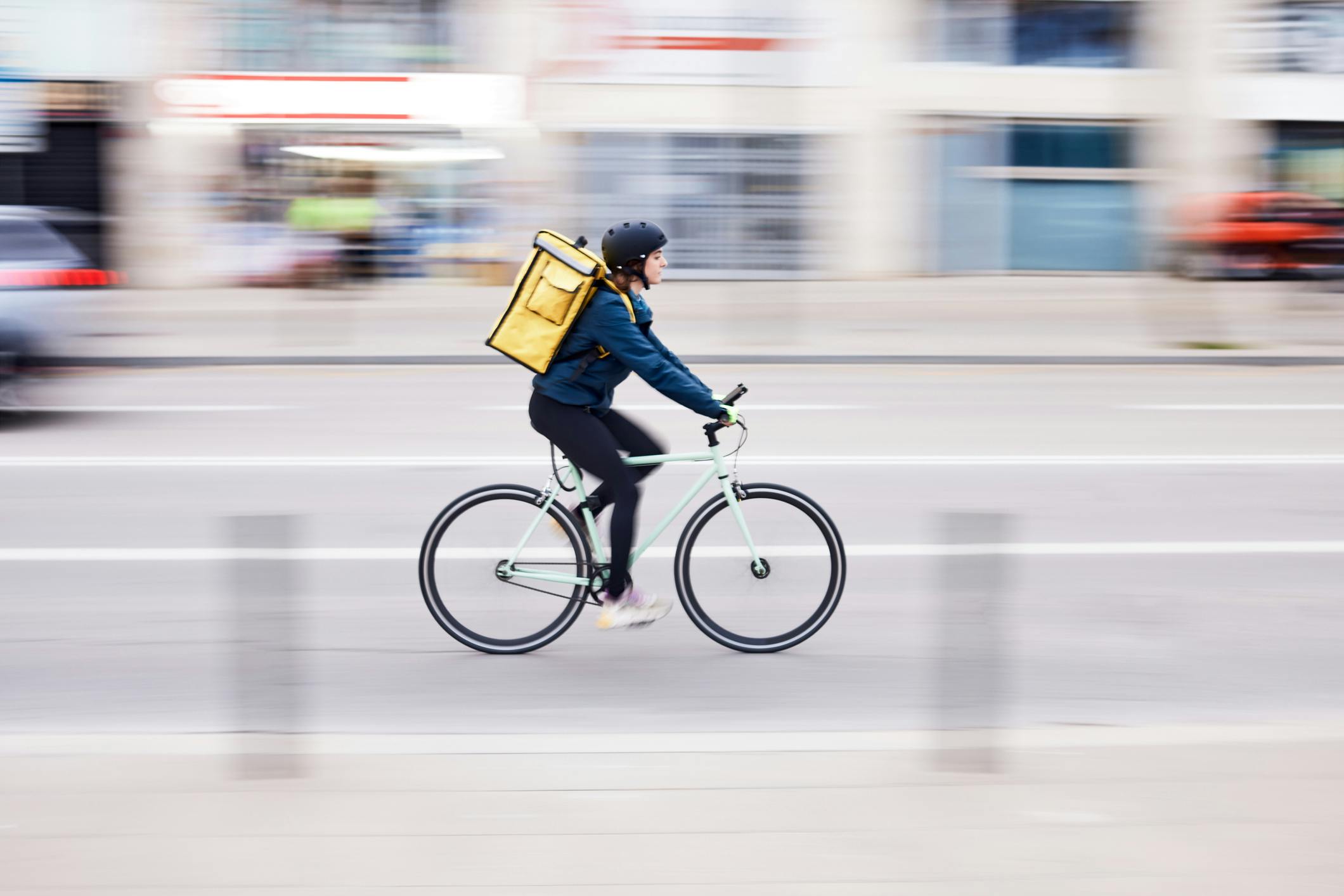Supporting Better Biking in Chicago With the Active Transportation Alliance
By: Martina Haggerty, vice president of infrastructure

PeopleForBikes is supporting the nonprofit advocacy organization’s efforts to transform Chicago streets by making biking safer and more accessible for everyone.
In 2024, PeopleForBikes awarded a grant to the Active Transportation Alliance in Chicago to support the nonprofit advocacy organizations’ transformative Safe Streets for All campaign. The campaign focuses on two key policy priorities: renewing funding for the Chicago Works Capital Improvement Plan, which accelerated the construction of concrete-protected bike lanes across Chicago in recent years, and lowering Chicago’s default speed limit to 25 miles per hour.
With speed being a leading factor in traffic fatalities across the U.S., reducing speed limits is a significant step toward making streets safer across the city of Chicago. The Active Transportation Alliance led a coalition of 16 community-based organizations to advocate for this change, garnering more than 1,000 comments from local community members and providing expert testimony at public hearings. In October 2024, the ordinance to lower speed limits passed out of the Chicago City Council's Committee on Pedestrian and Traffic Safety and both the Active Transportation Alliance and PeopleForBikes continue advocating for its full approval by the City Council.
Alongside advocating for safer policies, the Active Transportation Alliance also works to advance critical bike infrastructure projects. On the Far South Side, the organization is advocating for side paths on 103rd Street and 130th Street to address long-standing connectivity challenges caused by industrial and highway infrastructure. On the Southwest Side, the group is supporting the implementation of neighborhood bike networks and safety improvements along the historically dangerous Pulaski Avenue. On the Northwest Side, the Active Transportation Alliance partnered with community leaders to improve the protected bike lane along Milwaukee Avenue, a vital corridor serving a local high school.
The Active Transportation Alliance’s work in Chicago offers several valuable lessons for other communities looking to improve biking locally:
- Build broad coalitions. The Active Transportation Alliance’s Safe Streets for All Coalition brings together diverse stakeholders, including groups focused on youth and disability rights. The collective outcomes achieved by the coalition demonstrate the value of developing broad-based support to drive systemic change.
- Make engagement in advocacy accessible. By offering stipends, translation services, and accessible meeting locations, the Active Transportation Alliance ensures that the voices of community members who are sometimes excluded from public planning processes are heard and involved in decisions.
- Cultivate relationships with decision-makers. Through one-on-one meetings, public comments, and grassroots advocacy, the Active Transportation Alliance cultivates meaningful relationships with city officials and other key decision-makers. This direct engagement is instrumental in securing wins for bike projects and policies.
- Fund bike infrastructure. Local programs like Chicago Works enable rapid deployment of life-saving infrastructure while freeing federal funds for other large-scale projects. This approach provides a model for other communities seeking to accelerate the development of their bike network.
- Reduce speeds. Reducing vehicle speeds is one of the simplest yet most effective first steps to improve road safety — studies show that lower speeds make streets safer for all road users. By advocating for a citywide default speed limit of 25 mph, the Active Transportation Alliance sets an important precedent for other communities to follow. Integrating additional infrastructure investments to lower speeds via smart street design will further improve road safety in the future. Bonus: Lowering speed limits can boost your City Ratings score!
PeopleForBikes is proud to support the Active Transportation Alliance as they champion safer streets and connected bike networks across Chicago. Their work is a powerful example of how all communities can prioritize biking and safety, creating healthier, more accessible communities for all.
To learn more, check out PeopleForBikes’ guidance on legislative initiatives that improve bike infrastructure, like funding bike infrastructure and reducing speeds, and effective local advocacy tactics like building broad coalitions, increasing community engagement, and fostering relationships with decision-makers.
Related Topics:
